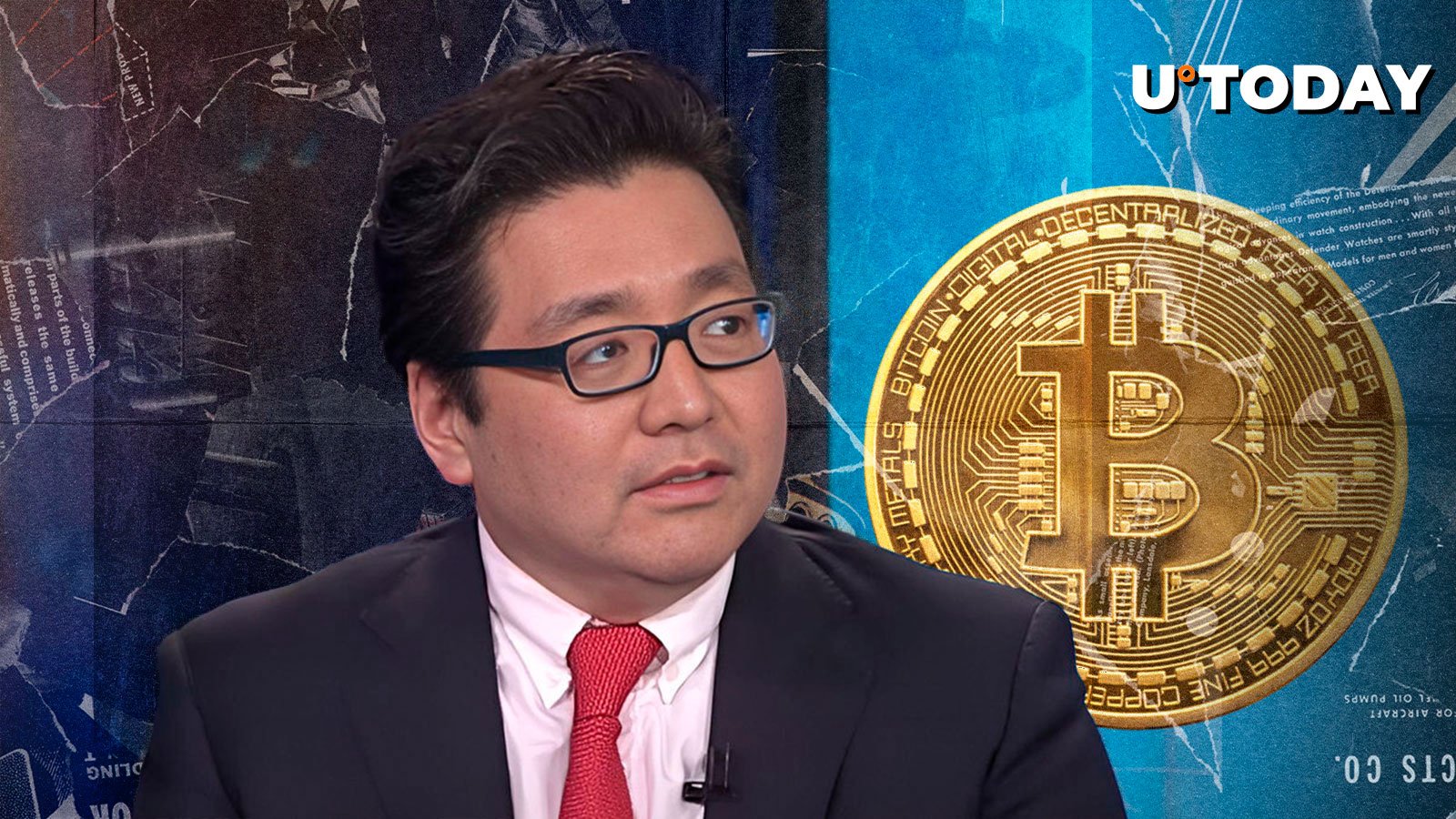Disclaimer: The opinions expressed by our writers are their own and do not represent the views of U.Today. The financial and market information provided on U.Today is intended for informational purposes only. U.Today is not liable for any financial losses incurred while trading cryptocurrencies. Conduct your own research by contacting financial experts before making any investment decisions. We believe that all content is accurate as of the date of publication, but certain offers mentioned may no longer be available.
During a recent appearance on CNBC’s “Squawk Box,” Fundstrat’s Tom Lee has predicted that the price of Bitcoin (BTC) could end up surging above the $100,000 level this year.
Lee is convinced that six figures are still “possible” for the largest cryptocurrency this year.
The fact that the regulatory overhang is now diminishing has been singled out as one of the key bullish catalysts by the famous permabull.
As reported by U.Today, Lee has repeatedly predicted that the price could surge to as high as $150,000 this year. His predictions should, of course, be taken with a grain of salt.
Lee has noted that Bitcoin could potentially be a treasury reserve asset. If the leading cryptocurrency rises in price, it could actually offset the deficit, according to the prominent analyst.
As reported by U.Today, Senator Cynthia Lummis introduced a bill to establish a Bitcoin treasury reserve that would reach 5% of the cryptocurrency’s total supply. The proposal, which has been enthusiastically supported by Bitcoin evangelists of the likes of Michael Saylor, will likely face many legislative obstacles.
The Fundstrat analyst also sees a lot of upside for small-cap stocks.
“I do think that there is still a lot of upside,” he said when referring to small-cap stocks.
Lee has noted that risk assets are also benefiting from the dovish Federal Reserve. As reported by U.Today, the Fed recently implemented another 25-basis-point rate cut. Lee believes that it made the right decision. “I agree with the Fed’s view that we need to move toward neutral, which is toward 3%. So I think it is supportive of markets,” he said.

